第62章
People cry to us: "Be content with what you have, desire nothing that is beyond your estate restrain your curiosity, tame your intellectual disquiet."These are very good maxims; but if we had always followed them, we should still be eating acorns, we should be sleeping in the open air, and we should not have had Corneille, Racine, Moliere.Poussin, Lebrun, Lemoine or Pigalle.Philosophical Dictionary: On the English Theatre ON THE ENGLISH THEATRE I HAVE cast my eyes on an edition of Shakespeare issued by Master Samuel Johnson.I saw there that foreigners who are astonished that in the plays of the great Shakespeare a Roman senator plays the buffoon, and that a king appears on the stage drunk, are treated as little-minded.I do not desire to suspect Master Johnson of being a sorry jester, and of being too fond of wine; but I find it somewhat extraordinary that he counts buffoonery and drunkenness among the beauties of the tragic stage: and no less singular is the reason he gives, that the poet disdains accidental distinctions of circumstance and country, like a painter who, content with having painted the figure, neglects the drapery.The comparison would be more just if he were speaking of a painter who in a noble subject should introduce ridiculous grotesques, should paint Alexander the Great mounted on an ass in the battle of Arbela, and Darius' wife drinking at an inn with rapscallions.
But there is one thing more extraordinary than all, that is that Shakespeare is a genius.The Italians, the French, the men of letters of all other countries, who have not spent some time in England, take him only for a clown, for a joker far inferior to Harlequin, for the most contemptible buffoon who has ever amused the populace.Nevertheless, it is in this same man that one finds pieces which exalt the imagination and which stir the heart to its depths.It is Truth, it is Nature herself who speaks her own language with no admixture of artifice.It is of the sublime, and the author has in no wise sought it.
What can one conclude from this contrast of grandeur and sordidness, of sublime reason and uncouth folly, in short from all the contrasts that we see in Shakespeare? That he would have been a perfect poet had he lived in the time of Addison.
The famous Addison, who flourished under Queen Anne, is perhaps of all English writers the one who best knew how to guide genius with taste.He had a correct style, an imagination discreet in expression, elegance, strength and simplicity in his verse and in his prose.A friend of propriety and orderliness, he wanted tragedy to be written with dignity, and it is thus that his "Cato" is composed.
From the very first act the verses are worthy of Virgil, and the sentiments worthy of Cato.There is no theatre in Europe where the scene of Juba and Syphax was not applauded as a masterpiece of skill, of well-developed characters, of fine contrasts, and of pure and noble diction.Literary Europe, which knows the translations of this piece, applauded even to the philosophic traits with which the role of Cato is filled.
The piece had the great success which its beauty of detail merited, and which was assured to it by the troubles in England to which this tragedy was in more than one place a striking allusion.But the appositeness of these allusions having passed, the verse being only beautiful, the maxims being only noble and just, and the piece being cold, people no longer felt anything more than the coldness.Nothing is more beautiful than Virgil's second canto; recite it on the stage, it will bore: on the stage one must have passion, live dialogue, action.People soon returned to Shakespeare's uncouth but captivating aberrations.Philosophical Dictionary: Philosopher PHILOSOPHER PHILOSOPHER, lover of wisdom , that is to say, of truth.
All philosophers have had this dual character; there is not one in antiquity who has not given mankind examples of virtue and lessons in moral truths.
They have all contrived to be deceived about natural philosophy; but natural philosophy is so little necessary for the conduct of life, that the philosophers had no need of it.It has taken centuries to learn a part of nature's laws.
One day was sufficient for a wise man to learn the duties of man.
The philosopher is not enthusiastic; he does not set himself up as a prophet; he does not say that he is inspired by the gods.Thus I shall not put in the rank of philosophers either the ancient Zarathustra, or Hermes, or the ancient Orpheus, or any of those legislators of whom the nations of Chaldea, Persia, Syria, Egypt and Greece boasted.Those who styled themselves children of the gods were the fathers of imposture; and if they used lies for the teaching of truths, they were unworthy of teaching them; they were not philosophers; they were at best very prudent liars.
By what fatality, shameful maybe for the Western peoples, is it necessary to go to the far Orient to find a wise man who is simple, unostentatious, free from imposture, who taught men to live happily six hundred years before our vulgar era, at a time when the whole of the North was ignorant of the usage of letters, and when the Greeks were barely beginning to distinguish themselves by their wisdom?